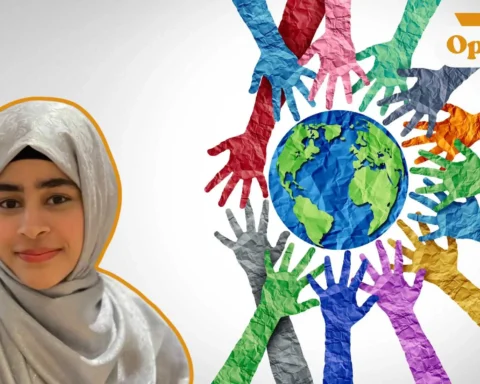In a groundbreaking medical achievement, Massachusetts General Hospital (MGH), a founding member of the Mass General Brigham health care system, has successfully transplanted a genetically edited pig kidney into a 62-year-old man suffering from end-stage kidney disease (ESKD). This historic surgery, conducted by the Mass General Transplant Center on March 16, signifies a major advancement in addressing the global organ shortage and the urgent need for organ donation.
A Landmark Surgery
The four-hour-long procedure, performed under the leadership of Dr Leonardo V. Riella, Dr Tatsuo Kawai, and Dr Nahel Elias, involved transplanting a pig kidney that had undergone 69 genomic edits to enhance compatibility with the human body. This kidney was modified using CRISPR-Cas9 technology to remove harmful pig genes and incorporate beneficial human genes. Additionally, porcine endogenous retroviruses were inactivated to eliminate infection risks.
Historical Context and Achievements
Mass General Brigham has a storied history in transplantation, including the world’s first successful human kidney transplant in 1954 and the nation’s first penile transplant in 2016. The institution’s transplantation programs leverage the expertise of leading transplant physicians and scientists, working collaboratively to push the boundaries of medical science and improve patient outcomes.
The Courage of the Patient
The recipient, Mr. Richard ‘Rick’ Slayman of Weymouth, has been a patient at the Mass General Transplant Center for 11 years and previously received a kidney transplant from a human donor in 2018. Facing the failure of his transplanted kidney in 2023, he resumed dialysis and experienced complications that significantly impacted his quality of life.
Addressing the Organ Shortage Crisis
The successful transplant represents a significant step forward in xenotransplantation—the transplantation of organs from one species to another. At MGH alone, there are over 1,400 patients on the waiting list for a kidney transplant. Some of these patients will unfortunately die or get too sick to be transplanted due to the long waiting time on dialysis.
Recipient Dies Two Months After Surgery
Richard “Rick” Slayman, the first recipient of a genetically modified pig kidney transplant, died approximately two months after the groundbreaking procedure. Massachusetts General Hospital, where the surgery took place in March, stated there is no indication that the transplant caused his death.
Although surgeons initially believed the kidney would function for at least two years, Slayman passed away recently, with his family and the hospital confirming his death on Saturday.
The hospital expressed deep condolences to his family. Slayman’s family thanked his doctors, acknowledging that the xenotransplant extended his life by seven weeks, during which they created cherished memories. They emphasised that Slayman underwent the surgery to inspire hope for thousands awaiting transplants, and his optimism and legacy will endure.
Advancing Transplant Medicine
The recent death of Richard “Rick” Slayman underscores both the significance and the challenges of xenotransplantation. While Slayman's case ended tragically, the potential of such transplants to address the critical organ shortage cannot be overstated.
With millions of individuals worldwide suffering on transplant waiting lists, innovative approaches like pig kidney transplants offer hope for a sustainable solution. By leveraging genetically modified organs from pigs, which can be readily available and potentially more compatible with human recipients, xenotransplantation holds promise for significantly reducing wait times and saving countless lives.
Despite setbacks, continued research and refinement of this technology could herald a new era in transplantation, offering renewed hope for those in desperate need of life-saving organ transplants.
Organ donation is a selfless act that offers a second chance at life to those battling organ failure. By donating healthy organs or tissues after death, individuals have the power to save lives and leave a lasting legacy.
The Need for Organ Donors
Despite the life-saving potential of transplants, the demand for organs vastly outstrips the available supply. According to the Organ Procurement and Transplantation Network (OPTN), as of May 2024, over 100,000 individuals are waiting for a life-saving organ transplant in the United States alone. Tragically, every day, approximately 17 people die while waiting for an organ.
The Impact of Organ Donation
The impact of organ donation is undeniable. A single donor can save up to eight lives and enhance the lives of over 75 more through tissue donation. This selfless act offers a glimmer of hope to countless individuals struggling with organ failure and provides their families with a chance for continued happiness.
Have you ever considered being a superhero? Not the kind with a cape and tights, but a real-life hero who can save lives from the shadows? Organ donation offers an extraordinary opportunity to become that hero, even after you're gone. They could be the heart that grants a musician extra years to compose, the lungs that allow a child to chase butterflies, or the liver that gifts a parent more precious moments with their family. So, become a hero and spread hope in someone else's darkness. Would you like to register yourself for organ donation? Or do you have the courage to undergo a transplant like Mr. Richard did? Do let us know in the comments below.
If you have burning thoughts or opinions to express, please feel free to reach out to us at larra@globalindiannetwork.com.










